Dear Friends,
Welcome to March’s Substack.
This month I celebrate the publication of my new novel The Far Side of the Desert, arriving March 5 and the publication February 20 of my novel Burning Distance in paperback.
In Book News an events calendar to date is posted, with the first in-person event March 9 at 3pm at Politics and Prose bookstore in Washington, DC. On March 6 a hybrid/virtual event will be hosted by Malaprop’s Bookstore in Asheville, NC at 6pm where readers anywhere can sign up by clicking this link. I’m looking forward to visiting bookstores and other venues around the country and seeing old friends and new readers. I hope you’ll join me!
March’s blog “The Far Side of the Desert” previews the opening pages of the novel and shares the backstory from the Author’s Note.
The Writer at Risk section focuses on the case of Yang Hengjun, an Australian writer and democracy advocate, arrested on his return to China and given a suspended death sentence which translates to life in prison if “good behavior.”
In Books to Check Out I preview two new books to be published this spring—Jennifer Clement’s The Promised Party: Kahlo, Basquiat & Me and Adam Sikes’ The Underhanded. Both books you’ll want to read.
In the Scenes section I shift to photos and text from The Far Side of the Desert.
I hope you’ll be engaged by these and other features and share this monthly Substack with friends. Subscribe if you haven’t already. On the Yellow Brick Road Substack is free!
Publication day for The Far Side of the Desert from Oceanview Publishing is almost here! The novel is in stores and available online March 5. I hope you’ll read and celebrate with me and enjoy the journey. And if you do, please tell your friends. And please leave a review—they help!
The audio has just come available so you can now listen to The Far Side of the Desert on Audible or whatever platform you use. I often both listen and read a book, listening when I can’t read as in a car and then picking up the book and reading words on the page or digitally. I hope you’ll enjoy in whatever and all forms.
From an early review in Foreward:
Joanne Leedom-Ackerman’s ambitious and thrilling novel The Far Side of the Desert concerns deep-seated family strife, the tentacular roots of global terrorism, and the psychology of reconciliation.
Sisters Monte and Samantha Waters, whose respective home lives are askew, are on a rare vacation with each other in northwest Spain when their serenity is usurped by a siege masterminded by an international arms and drug operation. One of the sisters is kidnapped, after which the peripherals of their complicated lives are given sharper focus. But they also have fortunate resources to draw from: Monte is a US foreign service officer whose presence in Santiago de Compostela comes on the heels of a stint at the US Embassy in Cairo, while Samantha is often on the move thanks to her stature as an international TV correspondent. Indeed, the Waters family is favored by enormous political reach and endless resources.
The story achieves swift forward movement thanks to its action scenes and its attention to the psychological tolls twisting between the relationships of an enigmatic abductor, Samantha and Monte, and their privileged American family’s dynamics. Attention to the humanity of all characters involved allows the seesawing perspective—which moves from the depths of secret Saharan camps into the labyrinthine alcoves of Gibraltar and toward aristocratic Washington, D.C.—to expand beyond the core terrorism plot into a story focused on the motivations and worldview transitions of children of privilege—and, conversely, of those swept up in the lure and tumult of geopolitical turmoil.
Global terror plots and interfamily dynamics are centered in The Far Side of the Desert, a propulsive thriller with myriad levels of intrigue and suspense.
Reviewed by Ryan Prado March / April 2024
To hear a review of The Far Side of the Desert on NPR’s Baum on Books on WSHU Public Radio, click the link.
The paperback of my novel Burning Distance has just published February 20, 2024 from Oceanview Publishing. I hope you’ll read again or for the first time and share with friends.
“Burning Distance is a double helix of a book, carefully plotted and beautifully told. It’s a spy story interwoven with a love story, and the strands fit together in a way that moves the reader effortlessly from chapter to chapter. While fiction, its narrative of the CIA and the Middle East arms trade are very close to fact. Joanne Leedom-Ackerman observes the world of American spies and Arab fixers through the eyes of a young woman who keeps asking questions about her mysterious past until she gets all the revelatory answers. A subtle and satisfying novel.”
—David Ignatius, New York Times best-selling author, Washington Post columnist and best-selling author of The Director
Below is a calendar for events around the publication of The Far Side of the Desert. More events will be added and details for events below can be found on my Speaking page.
The Far Side of the Desert
July, 2007
A Moorish king and queen bobbed momentarily above Samantha Waters’s scrambled eggs as if waiting to be fed. Outside the second-floor windows of the Hostal dos Reis Católicos, 12-foot puppets of kings and queens and devils and saints peered into the dining room then lurched away toward the square. Samantha leaned over the balustrade and filmed the festivities on the plaza below.
“Let’s go, Monte,” she urged her sister who was hunched over the wooden table with a plate of pancakes. “We can get coffee on the plaza.”
Outside, the smell of coffee and fresh almond cakes rose from pushcarts as pilgrims hurried past shaking tambourines, beating drums and filling the morning air with sound. Somewhere bagpipes played. The sun was already baking the cobblestones in the square where tables and chairs had been set up.
“It’s too crowded,” Monte complained as they merged with a stream of dancers and musicians. “This is a security nightmare!”
“It’s a festival!” Samantha spotted an empty table and tossed her black straw hat over the heads of other spectators to claim it. They’d arrived late last night, she from London and Monte from the U.S. Embassy in Cairo. At breakfast they’d read the guidebook which explained how a monk in the 9th century had discovered the body of the Apostle in a vault in the King and Queen’s home village. The village had been celebrating its destiny ever since…."
So begins my new novel The Far Side of the Desert which comes out March 5 and can be ordered now. It is the story of a diplomatic family, including two sisters and a brother, pulled into the nexus of a global plot when one of the sisters is kidnapped at a festival. No one asks for ransom or contacts the family about her whereabouts or why she was taken. Moving from Spain to Cairo to Washington to London to Morocco to Gibraltar, The Far Side of the Desert is a family drama and a political thriller that explores the links of terrorism, crime, and financial manipulation and the grace that ultimately foils destruction.
I hope you’ll read and be engaged by the story, the characters, and the themes. If you are, I hope you’ll tell friends, write a review, make a little noise.
Like my novel Burning Distance which published last year, The Far Side of the Desert is a story written and re-written over many years.
Shared here is the backstory from the Author’s Note:
I first visited Santiago de Compostela, Spain—the opening scene in The Far Side of the Desert—in 1993 as a delegate to PEN International’s 60th Congress. The PEN Congress coincided with the Festival of St. James and the Camino de Santiago where tourists and pilgrims gathered on the plaza in front of the massive Baroque and Romanesque cathedral. The PEN Congress was an entirely separate event, but the festivities overlapped in the square.
Salman Rushdie made a surprise visit to the Congress, one of his first since the fatwa had been issued against him. At that Congress I was elected the Chair of PEN International’s Writers in Prison Committee, the division of PEN that spearheads PEN’s human rights work on behalf of persecuted writers worldwide so I was one of a small group who greeted and shared dinner with Rushdie. I mention these events because it was there I began contemplating what it would be like if one had to disappear or was disappeared, either by choice or coercion. That question is central to the opening of The Far Side of the Desert. What happens when all the familiar props of life are taken away?
There are many events, much research and intertwining threads that develop in The Far Side of the Desert, but the seed of imagination began in Santiago de Compostela and at the end of the Camino on the rugged cliffs of Galicia facing west over the Atlantic. It is here the ancient Romans thought the world ended, a spot they called the Cape of Death because the sun died there and because ships wrecked on the rocks that jutted out into the sea. The Romans saw nothing westward and could imagine nothing but terrors so they declared Non plus Ultra: There is nothing beyond.
Imagining what is beyond, discovering what holds and what falls away is the journey of the two sisters Monte and Samantha Waters who are from an American diplomatic family. The outer frame of the story includes drug and arms trafficking, money laundering, and financial manipulation—a membrane of crime that smothers large parts of the globe. But the core is the characters and the journeys of their hearts and minds.
Yang Hengjun (China)
(Sources: PEN International, Australian PEN Centers, BBC News, The Guardian)
Recently given a suspended death sentence by the People’s Republic of China’s (PRC) court, Australian citizen Yang Hengjun has been awaiting his fate for five years, ever since he was arrested on a visit to China and detained on suspicion of espionage.
An independent scholar, novelist, and blogger who once worked in the Chinese Foreign Ministry, Dr. Yang is the author of a popular trilogy of spy novels known as the Fatal Weakness which features a double agent who spies for the US and PRC intelligence agencies. Dr. Yang, who advocates for human rights and freedoms in China, has also authored blogs on major Chinese international affairs websites which receive more than a million hits. A number of these articles are translated into English and published on The Diplomat.
Called by some the "democracy peddler" when he worked in the Chinese Foreign Ministry, Dr. Yang received a PhD and citizenship in Australia in 2002. He has since moved to the United States where he has been a senior fellow at the Atlantic Council in Washington, DC and a visiting scholar at Columbia University. He and his wife and her child—both Chinese citizens—travelled to Guangzhou in January 2019 where Dr. Yang was intercepted at the airport.
Dr. Yang's supporters have described his detention as political persecution. "He is punished by the Chinese government for his criticism of human rights abuses in China and his advocacy for universal values such as human rights, democracy and the rule of law," his friend, Sydney academic Feng Chongyi, told the BBC.
Initially Dr. Yang was held for six months at a secret location, part of extrajudicial detention known as Residential Surveillance at a Designated Location, where he said he was tortured. He was denied family visits and was granted limited access to legal counsel and consular visits. His trial was held behind closed doors and lasted less than seven hours with no consular representative allowed, a breach of both the Vienna Convention and the Australia-China bilateral consular agreement. He said he was subjected to over 300 interrogations. His request for the dismissal of testimony he gave under torture was denied by the PRC government.
Human Rights Watch Asia Director Elaine Pearson has said his case raises serious concerns of due process. "He has had delayed and limited access to legal representation, a closed door trial - and Yang himself has alleged torture and forced confessions during his interrogations," she told the BBC.
There are grave concerns about Dr. Yang’s health and his ability to receive adequate care. According to his Australian-based sons, his health is failing, and he is not receiving treatment.
Dr. Yang’s death sentence can be commuted to life imprisonment after two years of “good behavior,” according to Australian officials, who are calling for his release as are human rights organizations around the world.
“In light of the serious procedural issues surrounding his trial and the unsubstantiated allegations made against him, we call on the government of the People’s Republic of China (PRC) to end this injustice and facilitate Yang Hengjun’s immediate and unconditional release so that he can receive medical treatment and be safely repatriated to Australia,” declared PEN International.
Before his trial, Yang Hengjun shared his hope that he could continue writing “to help China to understand the world.” But he added: “If worse comes to worst, if someone wants to take revenge on me for my writings, please explain to the people inside China what I did, and the significance of my writing to people in China. The values and beliefs which we shared, and which I shared with my readers, are something bigger than myself.”
An attack on a writer, the shutting down of a publishing house, the torching of a newspaper reduce the space in the world where ideas can flow. Freedom of expression is vital to writers and to readers but is challenged daily around the world. Listed here are organizations whose work on human rights and in particular issues of freedom of expression I’ve been engaged with directly and indirectly over the years. Some of the organizations have broader agendas, but all have contributed to keeping space open for the individual voice.
PEN International (with its 147 centers in over 100 countries)
PEN American Center
English PEN
PEN/Faulkner Foundation
Human Rights Watch
Amnesty International
Amnesty International USA
International Freedom of Expression Exchange (IFEX)
Committee to Protect Journalists (CPJ)
Article 19
Index on Censorship
Poets and Writers
Authors Guild
International Center for Journalists
Recently Shepherd for Authors asked me to contribute to their Best Books series where they ask authors to recommend favorite books in a category of their own making, often reflecting their own featured novel. Click here to read my piece on “The best books that combine international political intrigue, romance, and family drama.”
Also, below are two upcoming books to look for and preorder, both by friends and talented writers—one an international political thriller The Underhanded by Adam Sikes due out April 2 and the other The Promised Party: Kahlo, Basquiat & Me by Jennifer Clement, a mosaic of a memoir as unique as Jennifer’s life and writing. The Promised Party is already published in England and is due out in the US May 28. Jennifer Clement’s novel Prayers for the Stolen is highlighted on the Shepherd website recommendations above.

Adam Sikes’ second novel from Oceanview Publishing, The Underhanded spins an elaborate tale that intertwines past and present in uncovering a conspiracy—the Strasbourg Executive which consists of businessmen, generals, politicians, and aristocrats working behind the scenes to assure European superiority. This centuries-old neofascist group fosters violence and chaos to preserve an autocratic order.
In The Underhanded, troubled history professor William Dresden uncovers secrets he’s unaware of in his research and is contacted by MI6 officer Adeline Parker. Before she can share information with him, a bomb goes off, and she realizes they are the targets and now also the suspects.
Dresden and Parker flee across France and England and Switzerland, seeking contacts from Dresden’s and Parker’s past to help them. In their flight they encounter the heart of the conspiracy along with sinister family secrets for both of them.
An intricate and intellectual thriller, The Underhanded keeps the reader turning pages especially in the last half of the book as the characters discover the hold and also the liberation that history can offer.
Dresden: “As a historian, I like to think I know a few things about the past. Some would call it useless knowledge, while others would say it’s sage counsel. In an out-of-control world. I fall somewhere in between, but like those who study martial arts or those who can speak the made-up languages of a sci-fi TV series, history is my passion because it makes me happy.”
Poet, novelist, essayist Jennifer Clement has led and leads the life of an activist artist and writer. In her journey she has met and had friendships, adventures, and misadventures with a wide array of other artists and creative people, including painter Jean-Michel Basquiat and his wife Suzanne Mallouk in New York City and the children and grandchildren of artist Frieda Kahlo, whose house was next door to where she grew up in Mexico City.
Born of American parents and spending her youth in Mexico, Jennifer offers the reader 100 brightly colored scenes in a vivid mosaic of a memoir. Mosaic, or perhaps pointillist painting, The Promised Party: Kahlo, Basquiat & Me presents these 100 strokes, each scene standing on its own, but also considered as a whole, they create a portrait of an artist and young girl with all the conflicts of family and friends, ambition and heart.
Mercedes walked me back home through the streets of San Angel. She held my hand in hers. “Even if we don’t believe any of this, we had a fun day, don’t you think?” she said. And then she added, looking up at the pepper trees that grew along the cobblestoned streets and the bougainvillea vines and ivy that lined the houses, “In this life you have to make everything up. That’s the only way one can survive it all. Do you know what I mean?”
“Yes,” I answered. I’d already learned not to let reality get in the way.
With the publication of The Far Side of the Desert I share here a few scenes and passages from the opening chapter set in Santiago de Compostela, Spain.

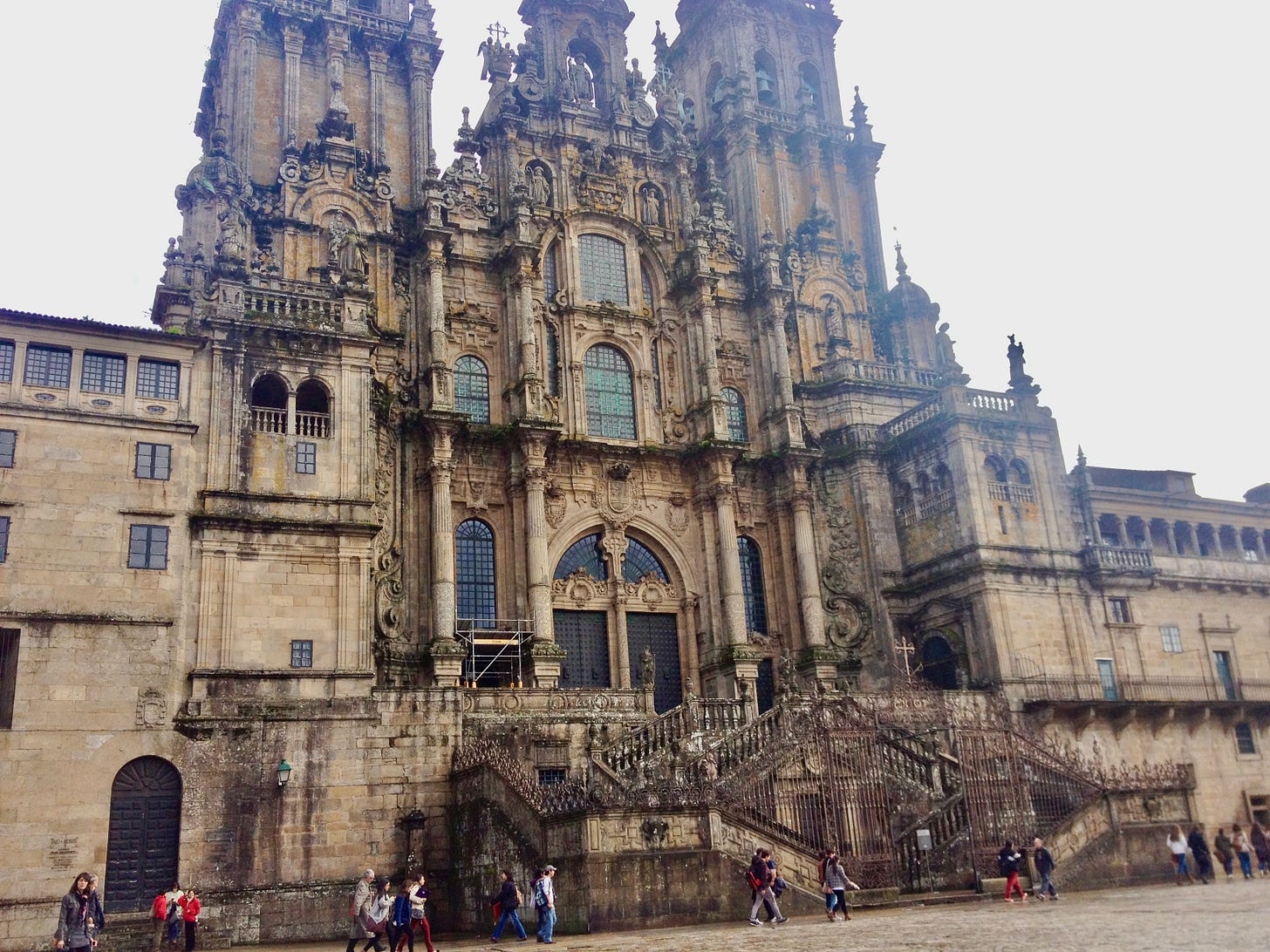
(Over the years I’ve accumulated a running list of words I haven’t known from two main sources: WordDaily and WordGenius)
Cachinnation
/ka-kǝ-‘nā-shen/
Part of speech: noun
1. Loud, convulsive laughter
Examples:
“Cachinnation spilled out of the movie theater showing the recent comedy release.”
“We tried to remain calm through the ceremony, but my friend and I burst into cachinnation when we caught each other’s eyes.”
“The hoots coming from the monkey habitat sounded almost like the cachinnation of a group of children.”
Sehnsucht
/ˈzānˌzo͝oKHt/
Part of speech: noun
1. Yearning; wistful longing
Examples:
“When I’m cooped up in the winter, I often feel a Sehnsucht for the joys of summer.”
“After serving as a bridesmaid for the fifth time, she started to feel a Sehnsucht for her turn as a bride.”
“Teens often feel a Sehnsucht and rush to grow up, but older generations can feel the opposite desire to return to their youth.”
Deuteragonist
/do͞odəˈraɡənəst/
Part of speech: noun
1. The person second in importance to the protagonist in a drama.
Examples:
“I tried out for the role of the deuteragonist because I thought she had a more interesting personality.”
“While not the main character, the deuteragonist is often a driving force in the plot.”
“My favorite characters are often deuteragonists, such as Samwise Gamgee and Ron Weasley.”
I’ve spoken at bookstores, university classes, book luncheons and in-person and zoom book clubs and look forward to more ahead. I enjoy giving readings and addressing audiences in many venues and moderating discussions on a wide range of topics and most of all meeting readers.
Click here for a list of future and past public events.
Or fill out the speaking request form to schedule an event.
I like engaging with readers so if you are in a Reading Group or Book Club and read one of my books, I’m glad to be in touch by email, zoom, or when possible in person. I can also suggest discussion topics.
Fill out the reading group form here to schedule a meeting.







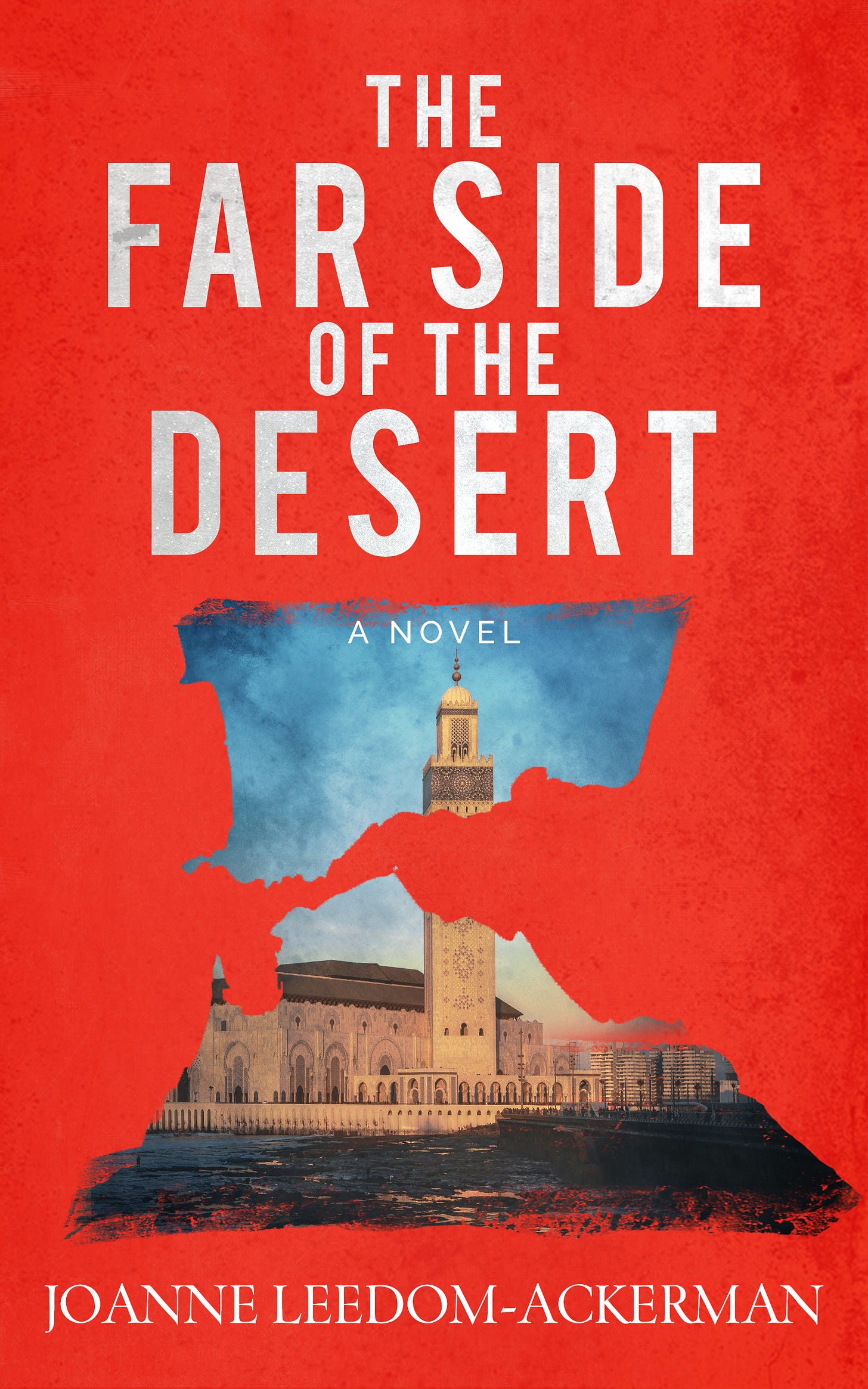
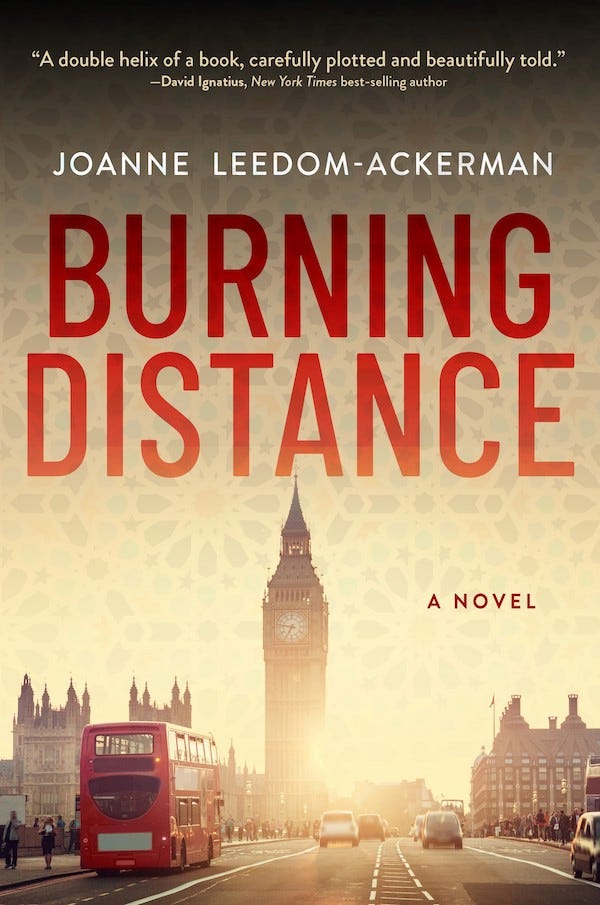







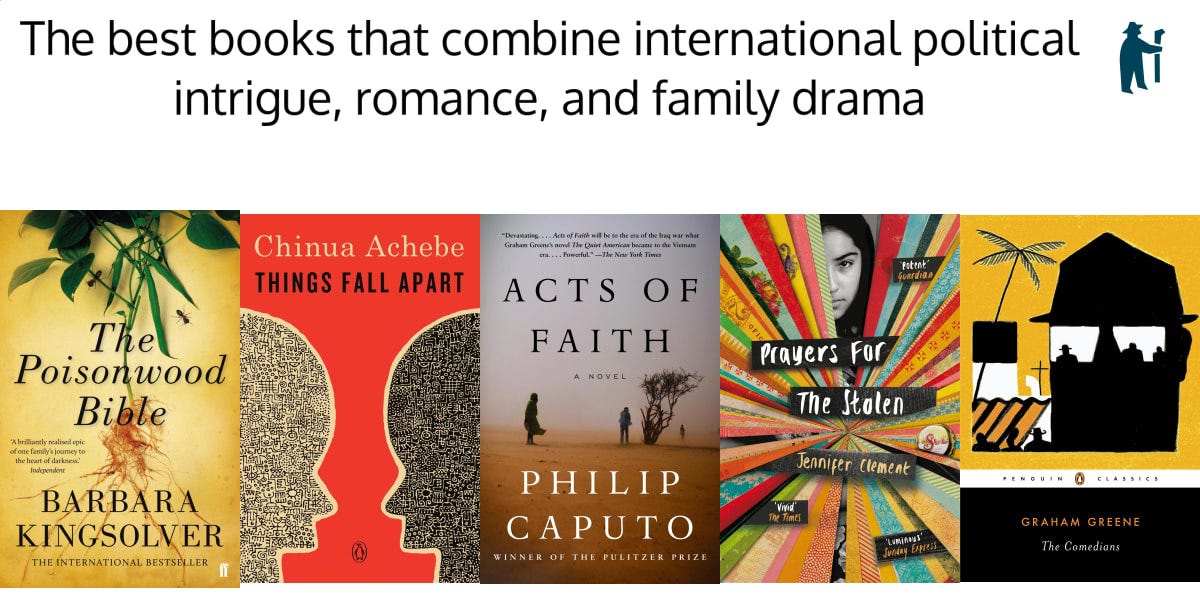
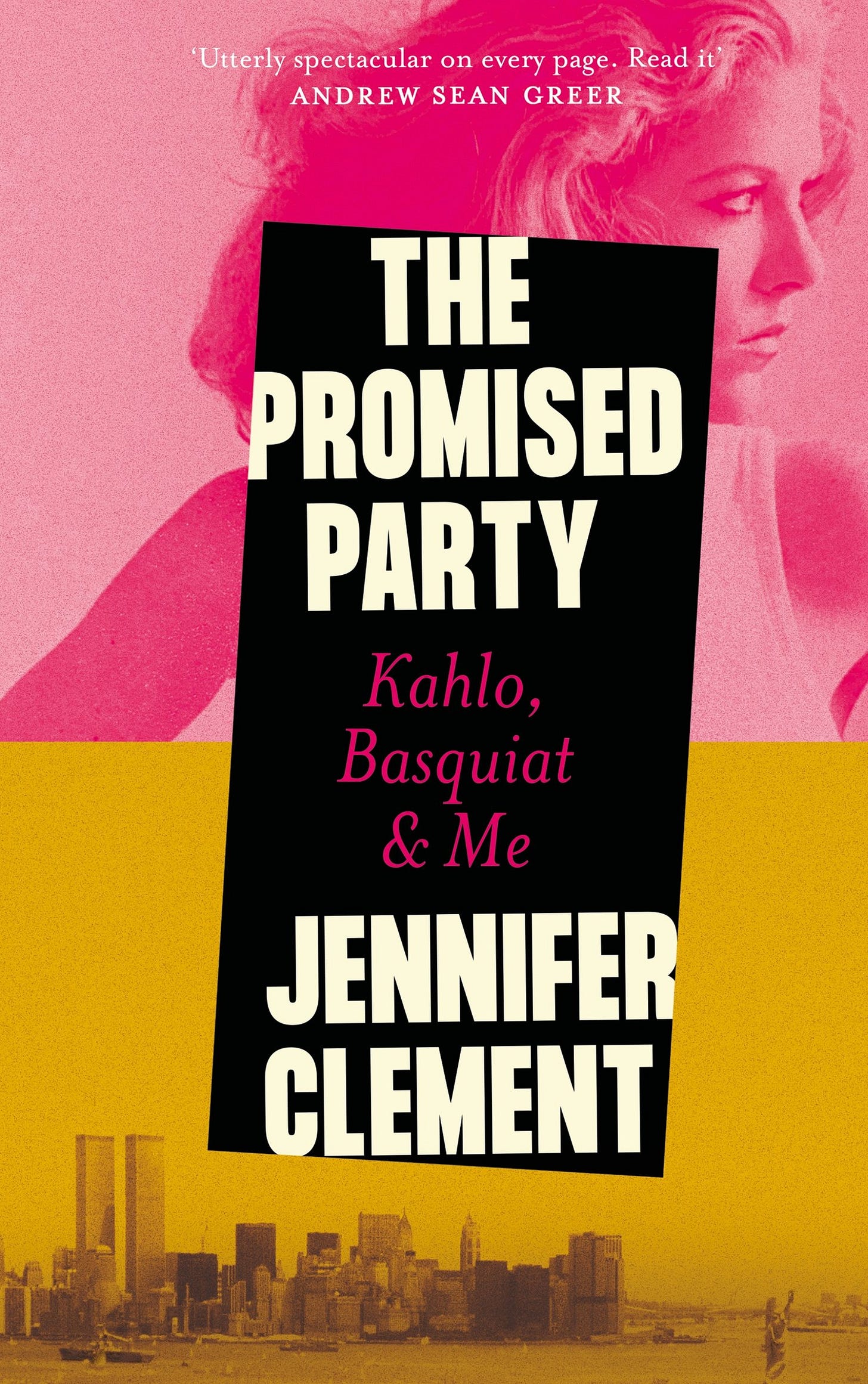



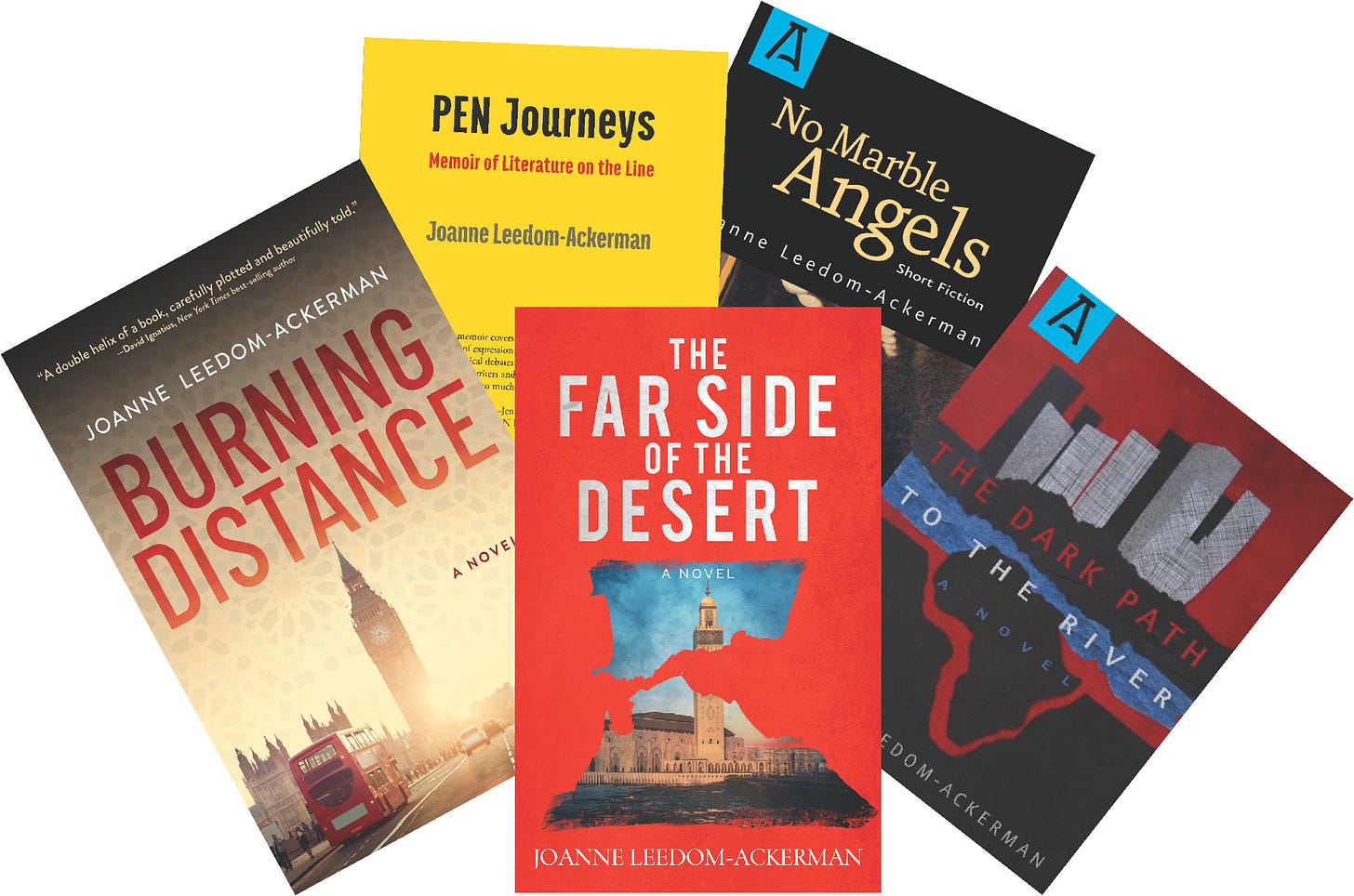
Hi Janny, I can't wait to read your newest book The Far Side of the Desert. I must say it sounds like good movie material too! Wishing you the very best!
Thank you, Becky. From your mouth to Hollywood!